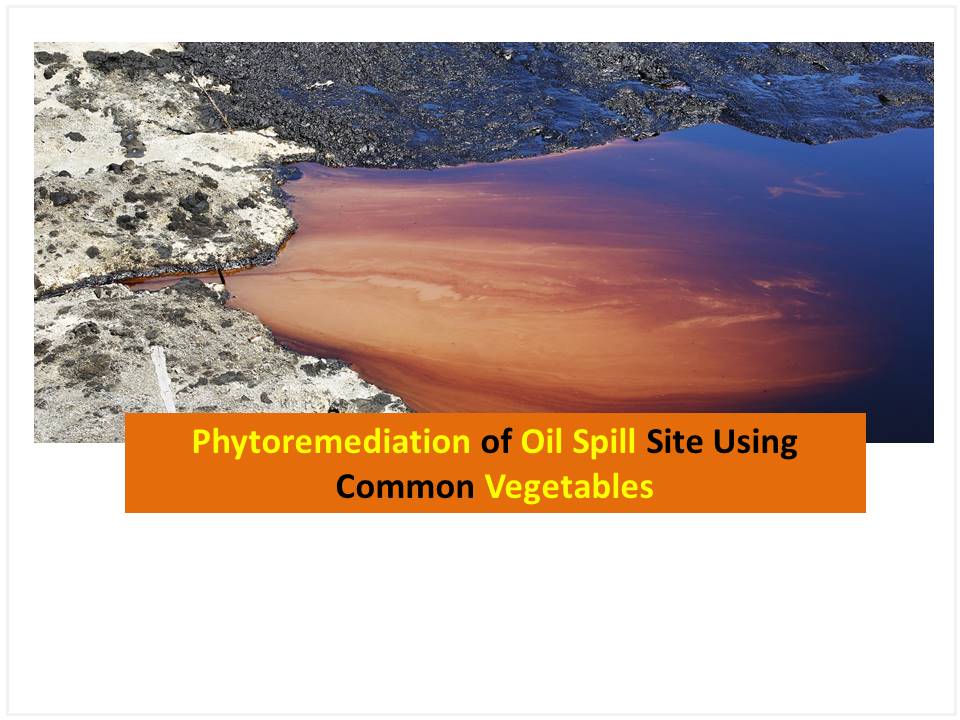Title
Environmental Phytoremediation Study of Oil Spill Site Using Common Vegetables: A Review
Authors
Peter C.C.,a Nworu J. S.,*b Arisabor L.c and Berezi O.K.a
aMarine Environment and Pollution Control, Nigeria Maritime University, Okerenkoko, Delta State, Nigeria.
bSchool of Basic Science (Chemistry), Nigeria Maritime University, Okerenkoko, Delta State, Nigeria.
cMeteorology and Climate Change, Nigeria Maritime University, Okerenkoko, Delta State, Nigeria.
*Corresponding author E-mail address: sunday.nworu@ebsu.edu.ng (Nworu J. S)
Article History
Publication details: Received: 15th December 2021; Revised: 28th February 2022; Accepted: 28th February 2022; Published: 10th March 2022
Cite this article
Peter C.C.; Nworu J. S.; Arisabor L.; Berezi O.K. Environmental Phytoremediation Study of Oil Spill Site Using Common Vegetables: A Review. Green Rep., 2022, 3(7), 16-24.

Abstract
The remediation procedure of debased and polluted soils, groundwater, and surface water by substantial metals needs a few strategies to expel the metals from debased zones. A few strategies have been utilized for expelling the toxins from the polluted conditions. Soils that are polluted with substantial metals can be treated by phyto-mining, corrosive draining, soil washing, physical or on the other hand mechanical partition of the contaminant, electro- compound treatment, electro kinetics, synthetic treatment, warm or pyrometalurgical partition and biochemical procedures. Phytoremediation is the utilization of plants to expel contaminants from soil and water. It is a moderate yet ecologically inviting approach to evacuate poisons. Plant materials, for example, organisms, lichens, tree covering, tree rings and leaves of higher plants have been utilized for a long time to identify the statement, aggregation and circulation of substantial metals contaminations. Lower plants particularly greenery and lichens have been generally utilized because of their ability for metal collection. Some higher plants have likewise been utilized for bio monitoring of substantial metals.
Keywords
environmental pollutions; oil spillages; remediation; vegetables; absorption